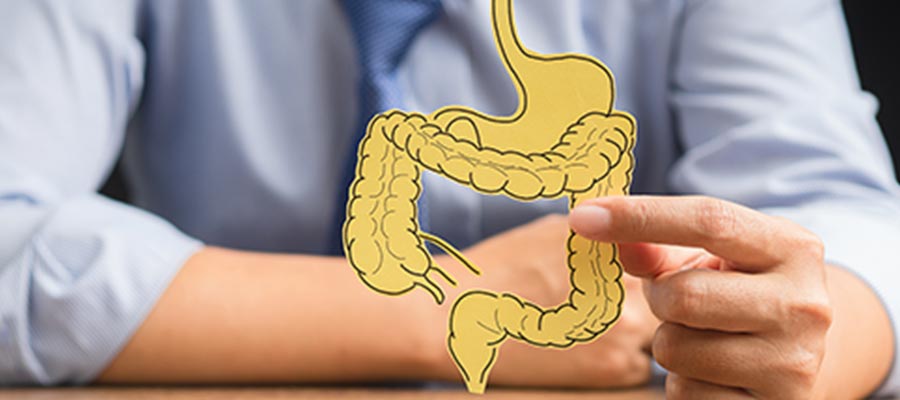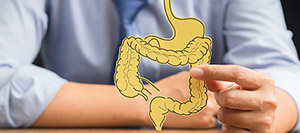Constipation Symptoms, Causes, Treatment & Prevention Q&A
If you are experiencing constipation, you are not alone. This typical condition can be unpleasant and stressful. Constipation is a common intestinal issue that can affect anyone at any age. Constipation can cause bloating, stomach pain, and the feeling of having incomplete bowel movements. Constipation occurs when your bowel movements become less frequent and stools become difficult to pass. Visit Digestive Disease Care to get comprehensive and specialized care from a board-certified gastroenterologist. For more information, contact us today or schedule an appointment online. We have convenient locations to serve you in Babylon NY, East Setauket NY, Forest Hills NY, Jericho NY, Lake Success NY, Melville NY, Mineola NY, Massapequa NY, New Hyde Park NY, and Riverhead NY.




Table of Contents:
What causes constipation?
What are the signs of constipation?
How do you treat constipation?
How do I prevent constipation?
Almost everyone suffers from some level of constipation at some point in their lives, with our bowel movements being the first indicators of something being awry in our bodies. Whether it is a physical or mental cause, many different at-home remedies are highly recommended to help you get back on track. Consider reaching out to a health care provider for constipation treatment if you see blood in your stool, experience severe pain when passing stool, if the constipation persists for longer than 3 weeks, lose weight unintentionally, and if you are displaying symptoms of outlet dysfunction constipation. The majority of the time, constipation can be alleviated with minor dietary changes or lifestyle changes. It could be indicative of a larger medical condition, so visiting a healthcare provider for the more severe cases is highly recommended to rule out anything serious.
Constipation can be caused by several factors, ranging from a small change in your diet or routine, or simply not consuming sufficient fiber to help keep things moving. Dietary concerns that may lead to constipation include not consuming enough water or consuming excessive amounts of dairy products. Other causes could be not getting enough physical exercise, experiencing stress, undergoing significant changes to your routine such as completely changing your schedule for eating or sleeping or doing something like traveling that forces those changes immediately. Another big cause of constipation could be resisting the urge to pass stool, perhaps because of a physical concern such as hemorrhoids, or not being somewhere that you are comfortable with making a bowel movement. Many different medications can also lead to constipation, including strong pain medication containing codeine, antidepressants, iron supplements, antihistamines, and many more. Some medical conditions that can lead to constipation include irritable bowel syndrome (IBS), pregnancy, colorectal cancer, and some neurological disorders, to name a few.
The indicators of constipation can vary depending on the cause and severity, but will all have to do with the frequency or ease at which you are producing bowel movements. Specific signs pointing to constipation include experiencing less than 3 bowel movements every week if the stool that is expelled is hard, dry, or lumpy, and if they are proving difficult to fully pass. Constipation will also commonly be associated with cramping or pain in the stomach, sensations of bloating or nausea, and feeling as if you are not quite finished emptying your bowels immediately following a movement.
As with the symptoms, the treatment of constipation relies heavily on the cause and severity of the situation. For dietary causes, foods that contain more fiber will be recommended, along with a higher consumption of water intake, and it may be recommended that coffee, alcohol, or dairy products be avoided or minimized. More at-home remedies may include increasing levels of exercise or having your feet slightly raised while making bowel movements. If these tips don’t help, it may be time to visit a healthcare provider to receive some type of laxative or other medication to help get things moving. Your health care provider may recommend that you try other medications or stop using a medication that you are currently on, but it is important that if the constipation is severe and unchanged after attempting the remedies speak with a health care provider before stopping or starting any medications. For rare but very severe cases, surgery may be the best treatment option to alleviate constipation for cases where there is a physical blockage within the digestive tract or a tear in the anus.
To avoid having to suffer from constipation or if you are at increased risk of chronic constipation, it is recommended that you consume plenty of fiber in your diet through fruits, vegetables, legumes, and whole grains. You should also be drinking plenty of water to keep the stools from becoming harder or drier, making them more difficult to pass. Regular exercise will also ensure that everything is moving along properly. Lastly, if you feel the urge for a bowel movement, try to pass it as soon as you can.
Treatment and prevention of constipation are important. Depending on the underlying reason for your constipation, the proper treatment can relieve these symptoms. Our team at Digestive Disease Care can provide you with the necessary guidance and support to help you prevent constipation. Don’t suffer in silence; contact us today for effective and customized constipation relief treatments. For more information, contact us or schedule an appointment online. We have convenient locations to serve you in Melville NY, New Hyde Park NY, Forest Hills NY, Jericho NY, Mineola NY, Lake Success NY, Babylon NY, East Setauket NY, Massapequa NY, Riverhead NY and BEYOND.

Check Out Our 5 Star Reviews


Additional Services You May Like

Additional Services You May Like
- Abdominal Pain
- Acid Reflux
- Barretts Esophagus
- Bloating
- Capsule Endoscopy
- Celiac Disease
- Colon Cancer Screening
- Colonoscopy
- Constipation
- Crohns Disease
- Diarrhea
- Diverticulitis
- Esophageal PH Monitoring
- Fatty Liver
- Fibroscan
- Gallstones
- Gastroenterologist
- Gastric Chest Pain
- Gluten Intolerance
- Hemorrhoid
- Hemorrhoid Banding
- Hepatitis
- Irritable Bowel Syndrome
- Lactose Intolerance
- Pancreatitis
- Polyps
- Rectal Bleeding
- Stomach
- Ulcerative Colitis
- GI Urgent Care





